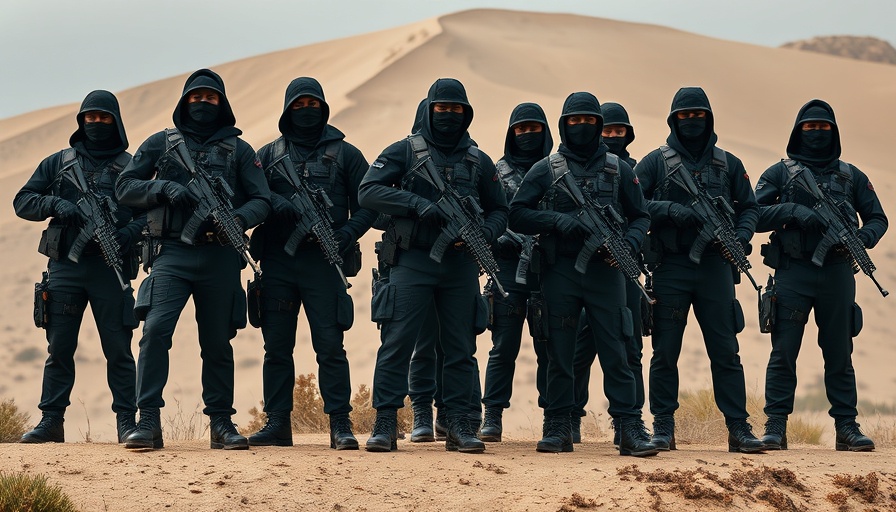
Understanding Hamas's Relentless Resolve
Amidst destruction and despair in Gaza, the question arises: why does Hamas refuse to surrender despite overwhelming losses? The conflict, which escalated following Hamas's attack on Israel in October 2023, has not only caused massive casualties—thousands of Hamas fighters have perished, and extensive infrastructure has crumbled—but has also intensified the group’s ideological commitment to resistance.
The Ideological Foundation of Resistance
Hamas’s steadfast refusal to disarm is rooted deep within its official doctrine. Analysts argue that the organization perceives its struggle not just as a military confrontation, but as a fundamental ideological battle for the Palestinian people’s freedom. Hamas leaders have framed their refusal to surrender as a strategic choice, aimed at sustaining a long-term resistance movement against what they consider oppressive Israeli policies.
“Surrender, as Israel and America are calling for it, is not in Hamas’s dictionary,” says Khaled al-Hroub, a prominent analyst on the group. This perspective showcases Hamas’s view that yielding would equate to conceding defeat, an unthinkable outcome for those committed to their ideological goals.
Cost of Resistance: The Human Toll
The human cost of this ongoing conflict is staggering, with tens of thousands of civilians bearing the brunt. Reports document heart-wrenching scenarios where families struggle to secure basic necessities like food, water, and electricity, significantly impacting daily life within Gaza. Each day in the besieged areas seems to repeat the harrowing challenges of survival amid chaos.
While Hamas’s leadership acknowledges the devastation, they have consistently referred to the casualties as a price for freedom. Such rhetoric aims to galvanize the community but raises moral questions about the value of individual lives versus collective political objectives.
The International Community's Response
Hamas's calculated passivity in the face of military might is intricately linked to its perceptions of Israel's international standing. The group hopes that by prolonging the conflict, it can challenge Israel’s diplomatic alliances and reshape the global narrative surrounding Palestinian rights. Leaders believe that the more the conflict drags on, the more it will isolate Israel and draw attention to the Palestinian plight.
This diplomatic strategy is reflected in the ongoing efforts by some nations and organizations to broker peace, though with mixed results. The question of legitimacy hangs heavy; can Hamas continue to represent Palestinian interests effectively if it fails to cultivate better relations with the international community?
A Battle Beyond the Battlefield
Hamas's conflict with Israel illustrates a struggle that transcends military engagement. It's as much about ideology and survival as it is about the immediate fight. The group believes that by maintaining its presence, it can advocate for Palestinian rights and negotiate from a position of resilience rather than defeat.
Moreover, this gives Hamas a narrative of resistance, a critical element for garnering support both locally and among sympathizers abroad. Their strategy is built not just on armed confrontation but on the emotional and symbolic importance of persistence in the face of adversity.
Future Implications for Peace Efforts
The implications of this ongoing struggle are vast, not just for the immediate region but for international diplomatic efforts aimed at peace. As long as Hamas holds firm, the prospects for a negotiated resolution may remain bleak. Would a shift in strategy—toward negotiation—ever be feasible for a group whose very identity is intertwined with resistance?
This central dilemma presents challenges not only to the Palestinian leadership but to the broader Middle Eastern stability. Important stakes lie in the potential outcomes of this conflict; the decisions made by Hamas could set the stage for generations to come.
Conclusion: Enduring Questions for the Future
The situation in Gaza is fluid, and Hamas remains an essential actor in the unfolding drama. Their refusal to surrender in the face of hardship raises profound questions about the nature of resistance, the definition of victory, and the moral complexities involved in the quest for freedom. As the conflict continues, both local and global communities will watch closely, hoping for a resolution that respects the dignity and rights of all involved.
The complexity of this situation urges a deeper understanding of both sides in the conflict. Until the underlying ideological and societal issues are addressed, the cycle of violence is likely to continue unabated, posing further challenges for those who advocate peace in the region.
 Add Row
Add Row  Add
Add 




Write A Comment